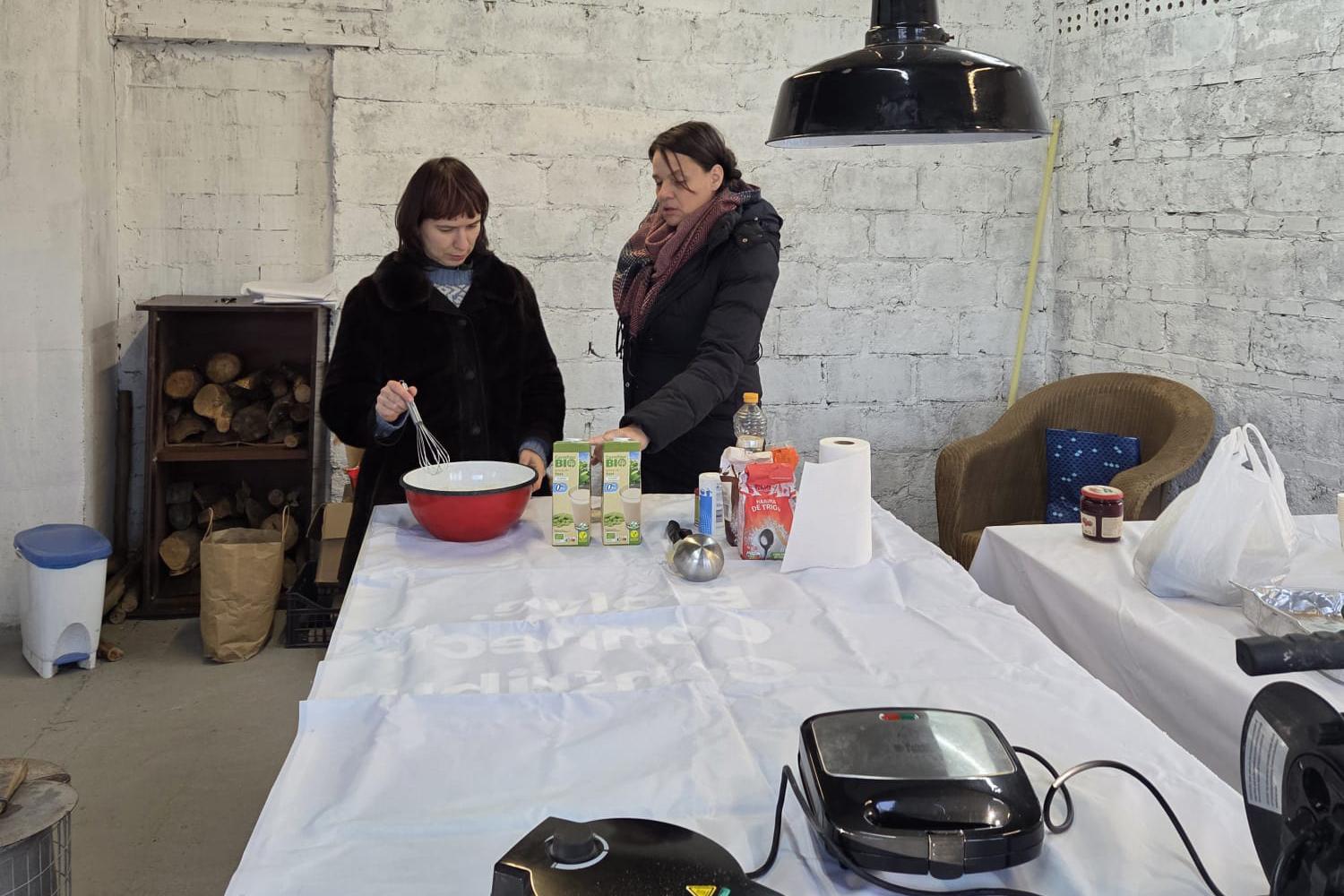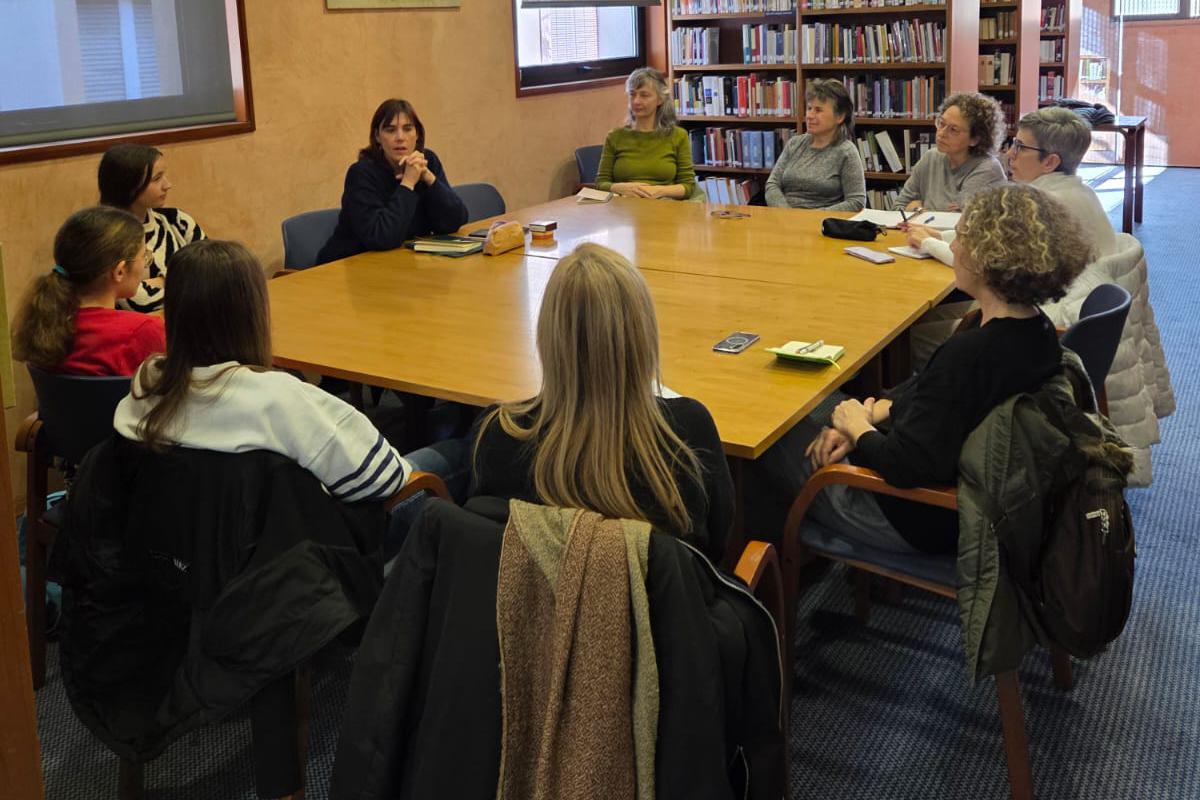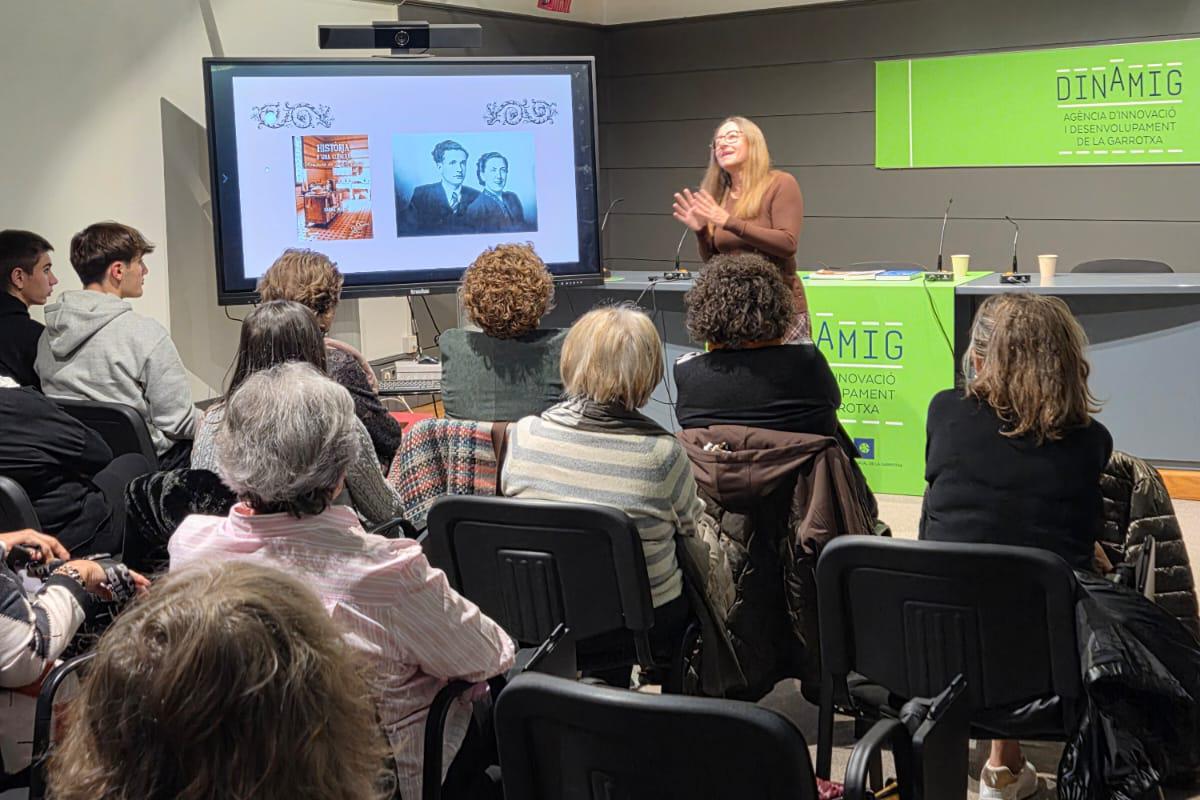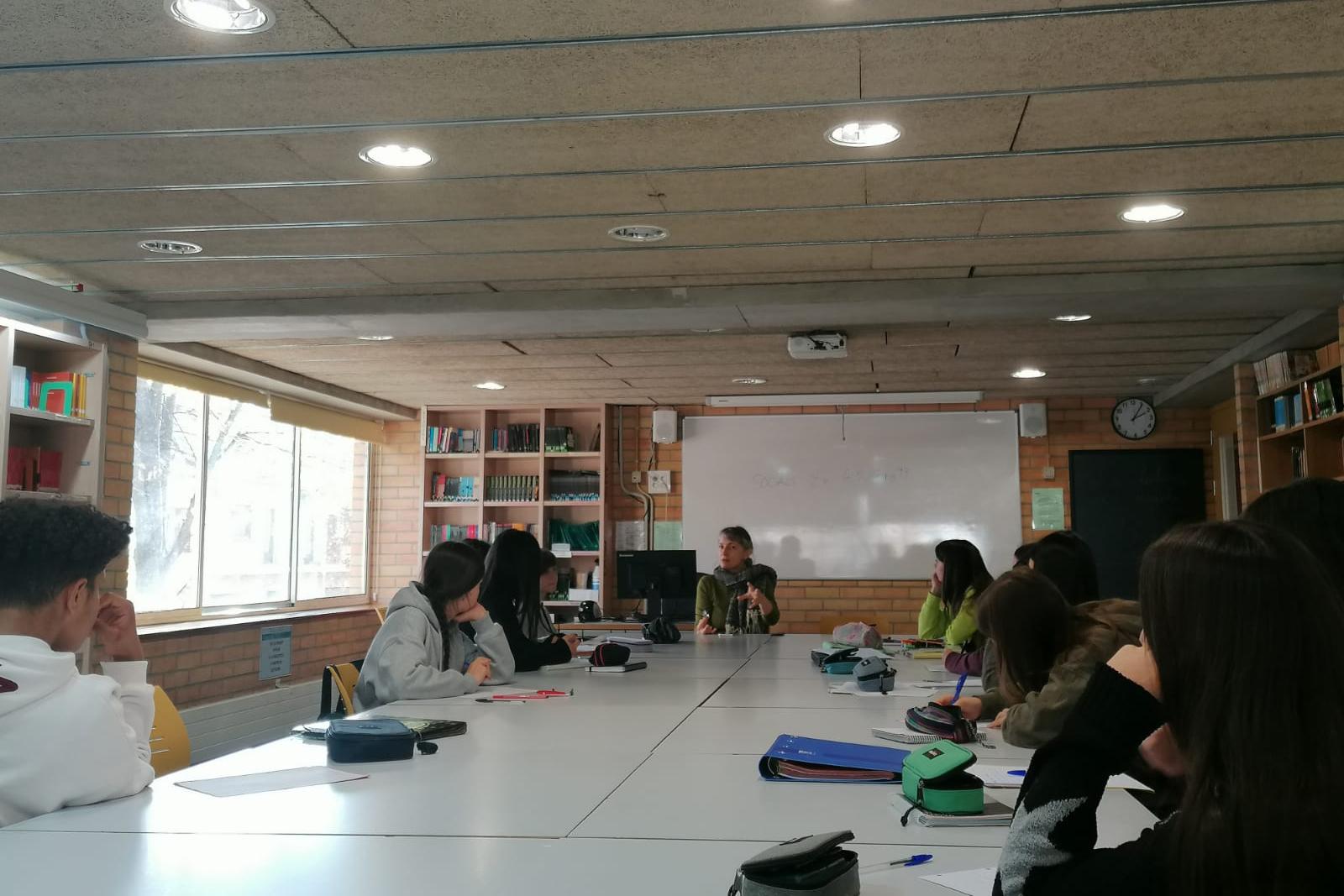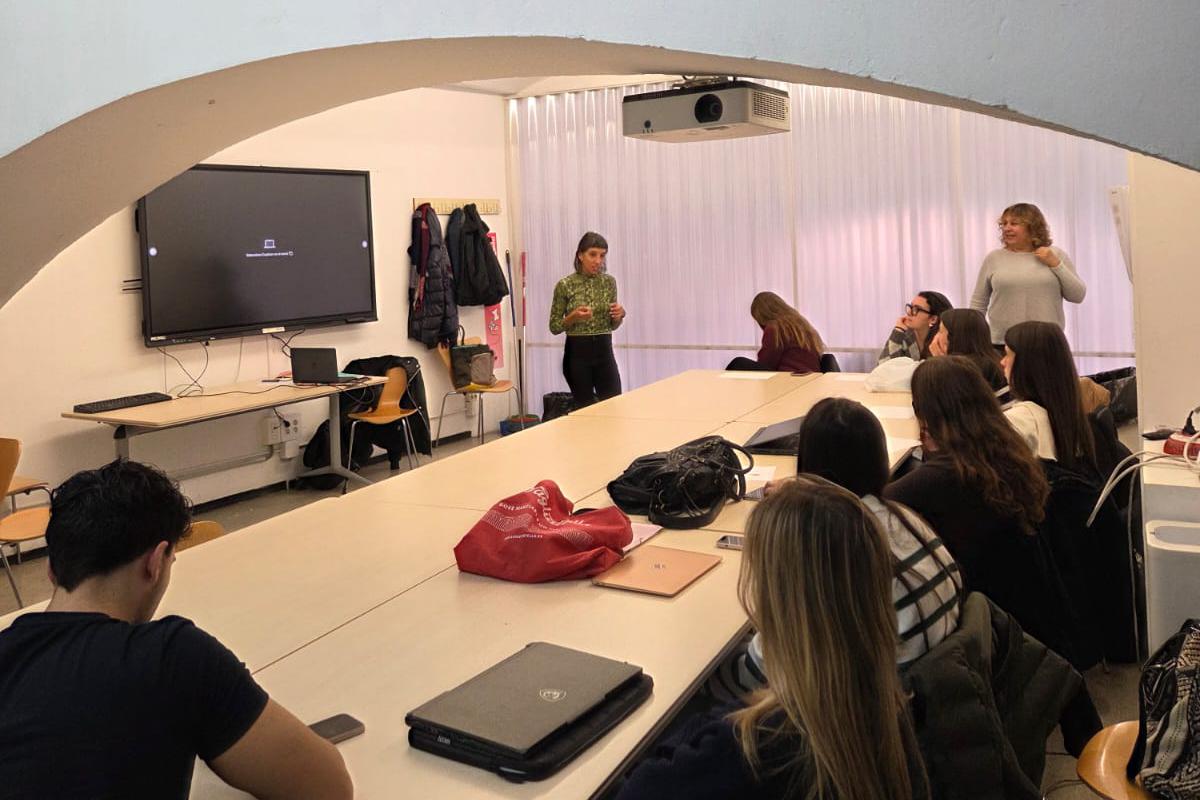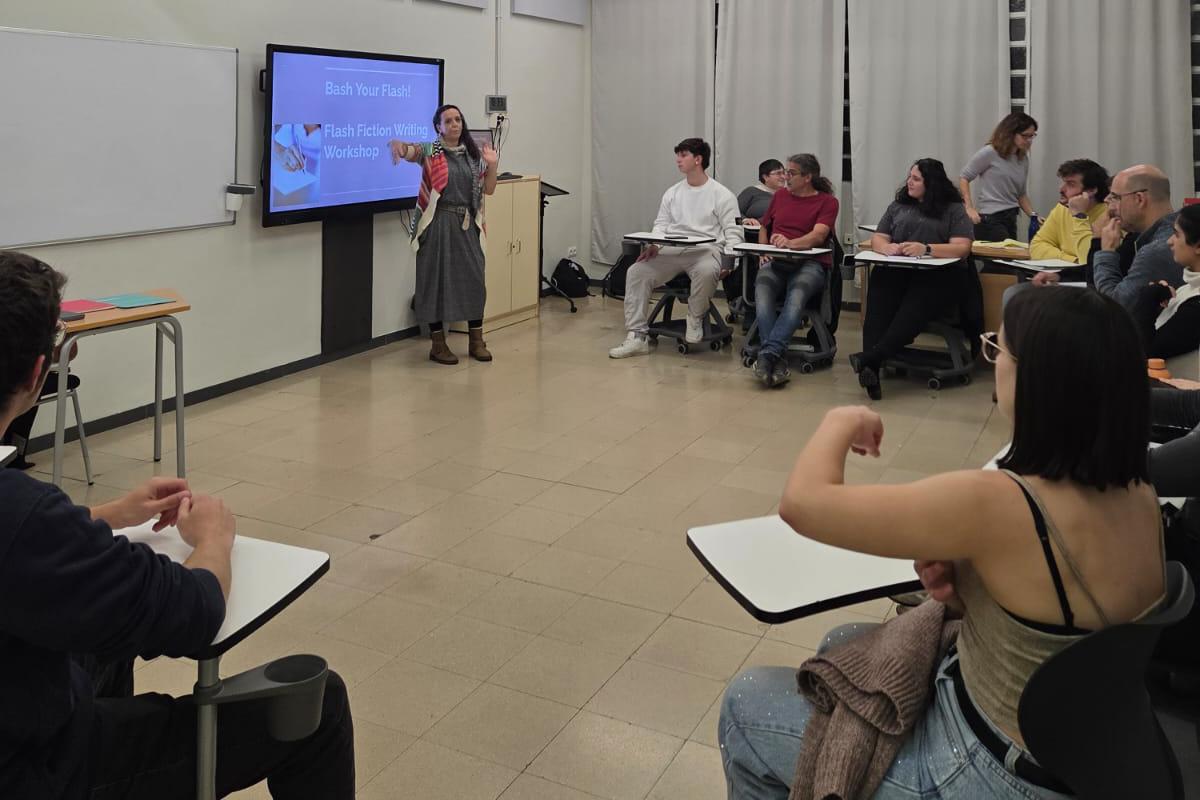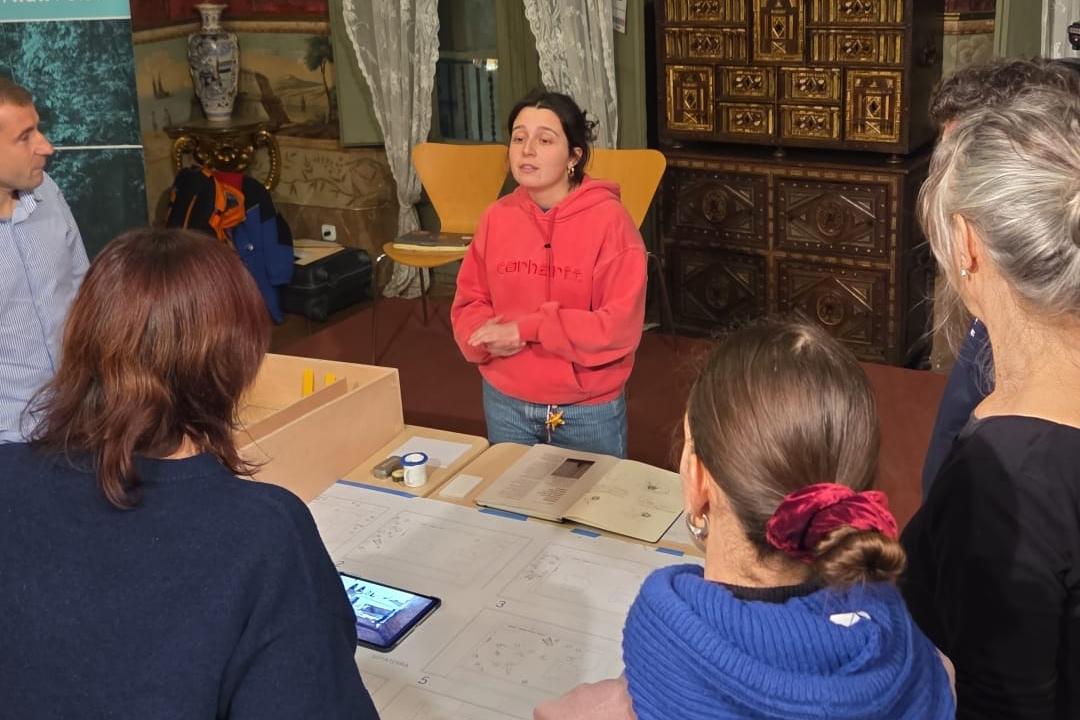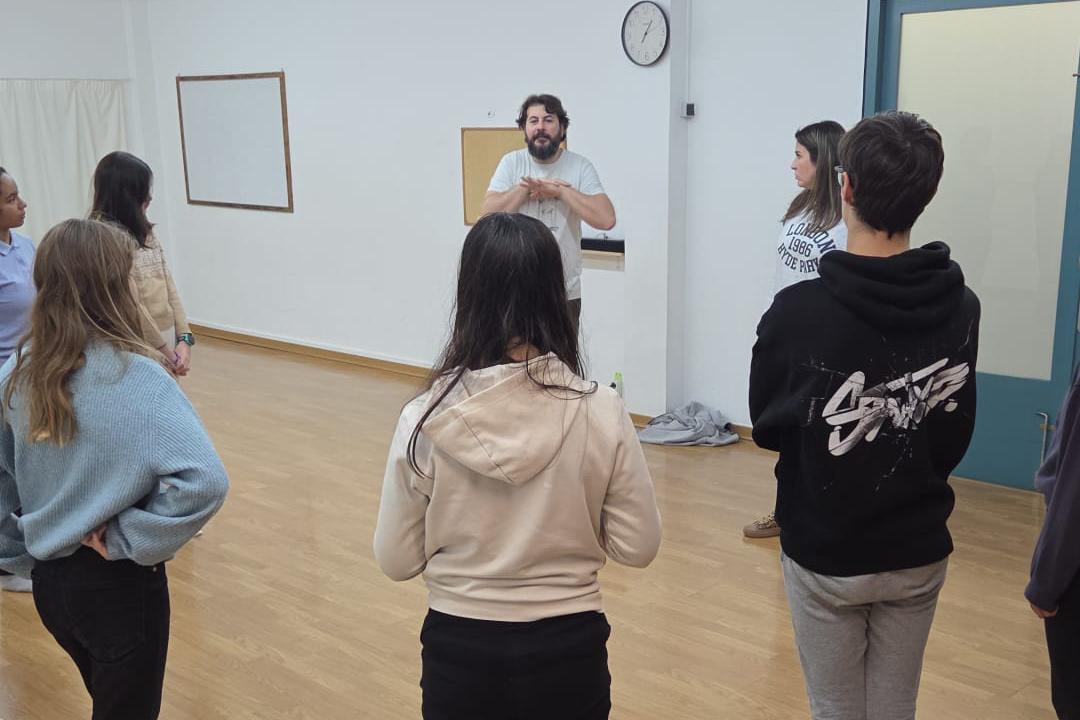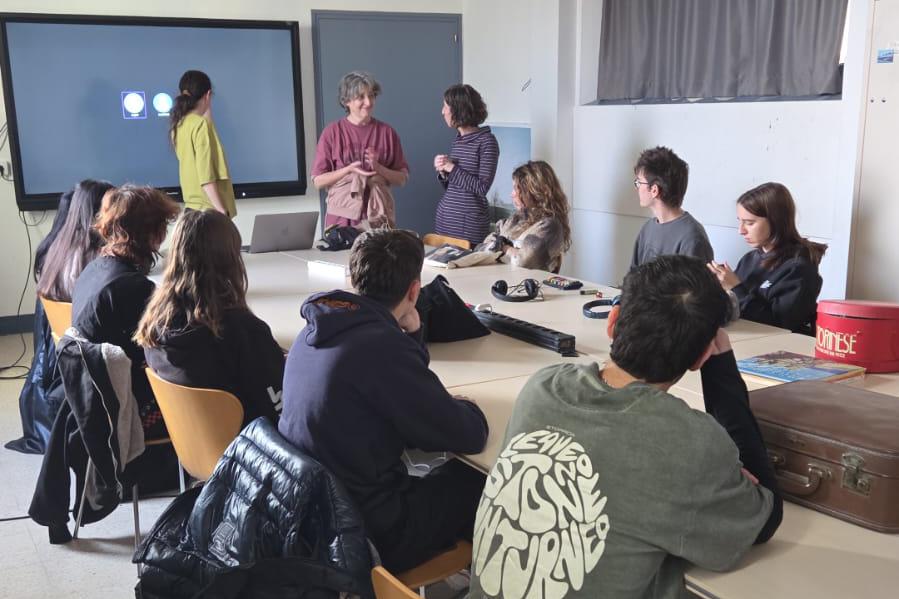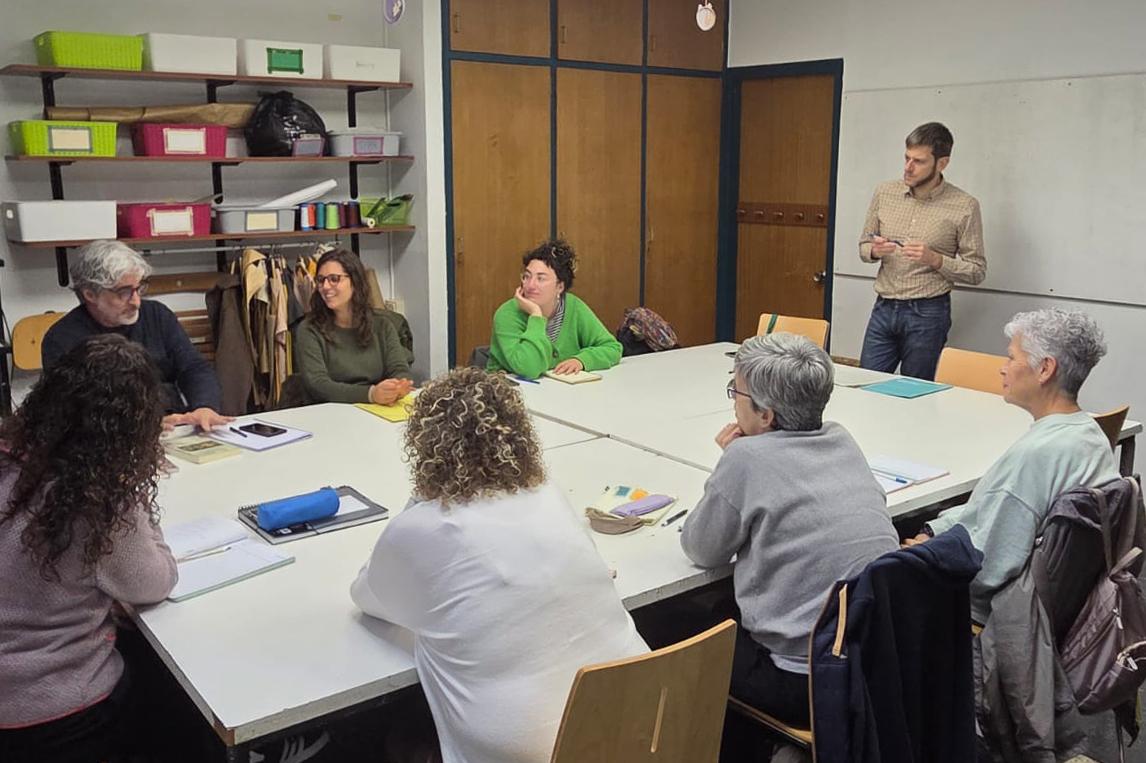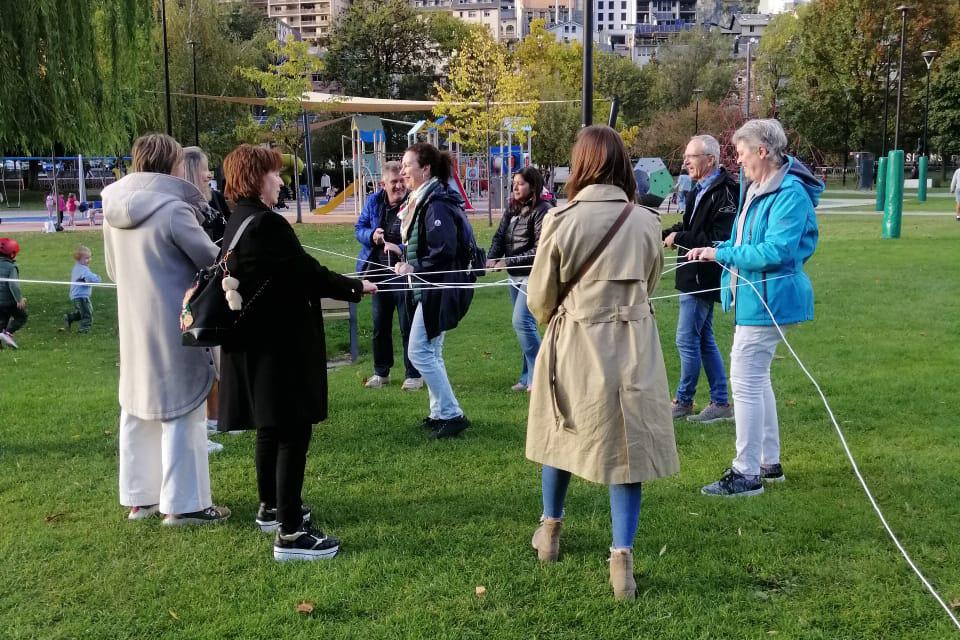Faber, ambitious and nationalistic
Wednesday, 28 September 2016 , Olot
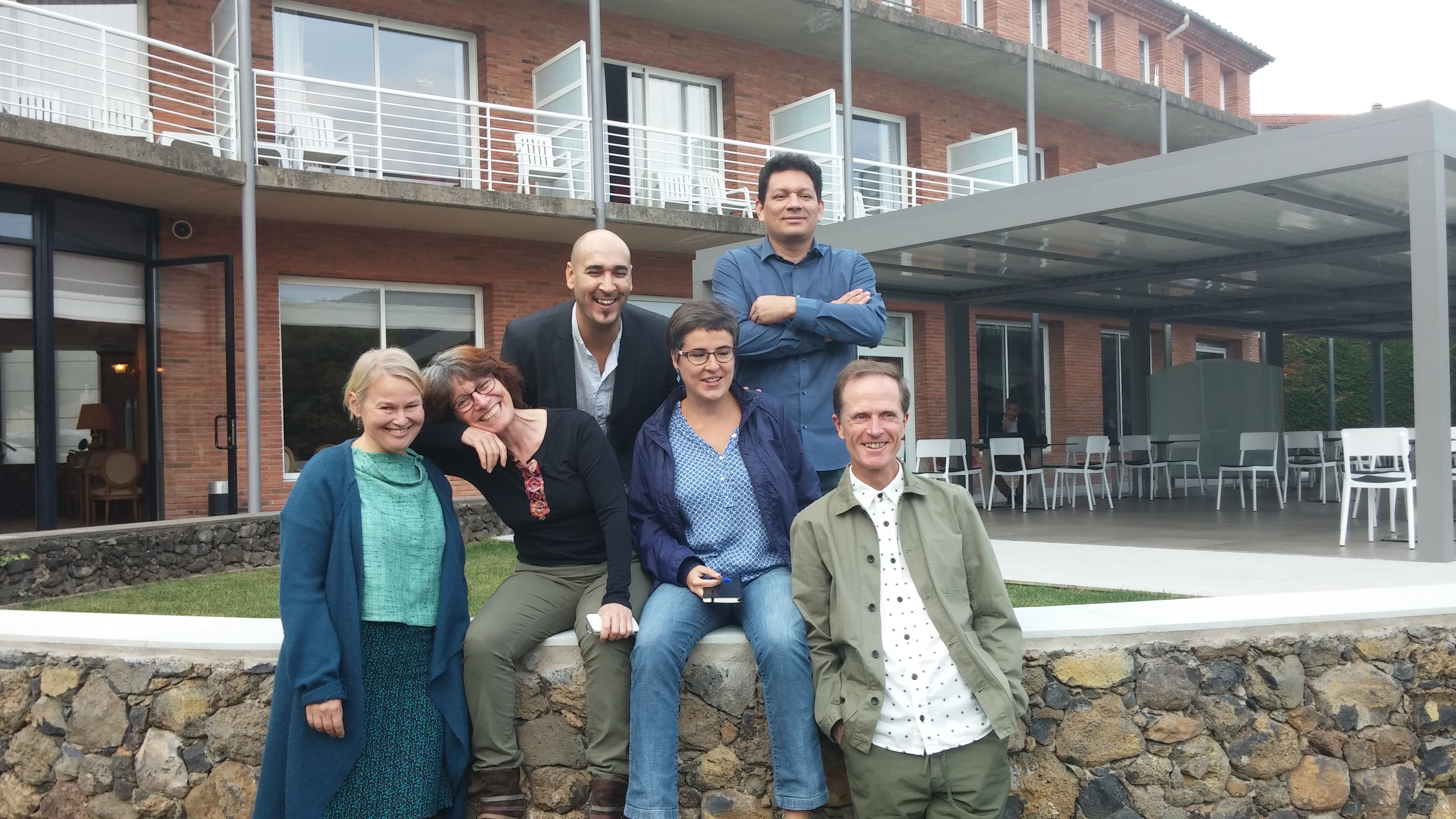
Faber, ambitious and nationalistic
These words—paraphrasing the poet Marc Granell—were the ones used by Laura Borràs to describe the need for a project such as Faber during the official launch of the residence in Olot. An ambitious project with a nationwide reach, that is how it was described by the Director of the Institute of Catalan Letters and the Councillor for Culture of the Olot City Council—Josep Berga—who accompanied the Director of Faber—Francesc Serés—, and two of the current residents during the press conference for the launch. The breathtaking landscape surrounding the gardens of the Hotel Riu Fluvià—where Faber is found—served as the perfect backdrop to go into detail about this pioneering project in Catalonia for its multidisciplinary approach and its vocation to serving society and the institutions.
The Councillor for Culture of the Olot City Council—the driving force behind Faber, together with the Department of Culture of the Generalitat of Catalonia—opened the event by giving the floor to the Director, Francesc Serés, who described the long journey to Faber’s opening. He emphasised its aim to become a space for work and interaction, as well as the impact that it should have on Olot, on Catalonia, and on the world. Serés pointed out the different backgrounds of the residents. In future, they can work around the same topic, but always from different standpoints and specialities. The ultimate goal is cultural and social enrichment for the residents resulting from not only their individual works, but also their interaction with each other and with the society around them.
The presence of two of the current residents at the launch drove home the practical reality of this goal that was conceptualised on paper. The writers Anna Ballbona and Noufel Bouzeboudja—who have been residing at Faber for nearly two weeks—explained what their experience has been like up to this point. Anna drew attention to the good rapport among the residents, which included secrets shared over dinner. But most of all, she underscored how conversations among the residents would undoubtedly have an influence on the projects that each of them was carrying out on an individual basis. Without a doubt, this was the intention of the people behind Faber—to mark a turning point for the residence, both for the residents themselves and the citizens, institutions, and companies with which they have had the chance to interact. Bouzeboudja made use of his turn to speak to call to mind the fight for survival of the identity of his birthplace, Kabylia. He compared that situation with the steady and pervasive presence of Catalan culture in Catalonia.
The ever-dynamic and instructive Laura Borràs closed the event with a speech that underlined the project’s aspirations and the indispensable support given by the Generalitat of Catalonia, considering its national impact. Borràs compared the interaction of talents at Faber with the legendary Residencia de Estudiantes (Students’ Residence) in Madrid, which is a melting pot for countless intellectuals throughout its decades of existence. The Director of the Institute of Catalan Letters read a fragment from a letter that one of these intellectuals—Federico García Lorca—wrote to his parents describing what he did at the residence: “I read nonstop all day”, and stressed the importance of humanities, nowadays often quite overlooked.
To bring the event to a close, a group photo was taken and some snacks were provided. It was during this time that the other residents—the writer Philip Hoare, the translator Satu Ekman, the writer Jorge Galán, and the television producer Erga Netz—were able to informally answer questions from the fifteen or so reporters there. They were all witnesses to the birth of a new project that seeks to bring together the very best talent in arts, letters, and sciences from around the world over the years.


